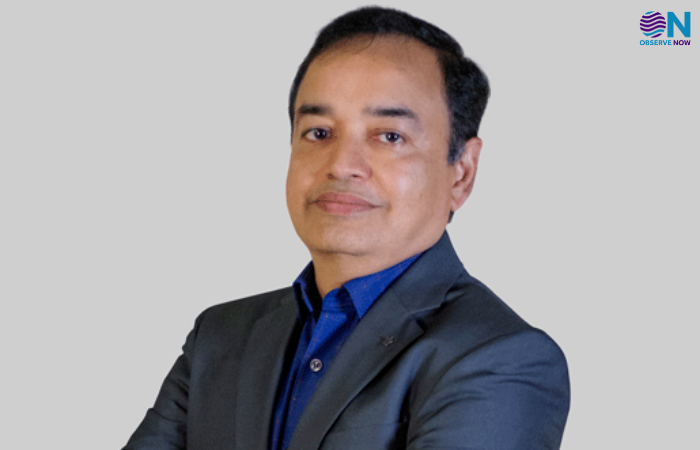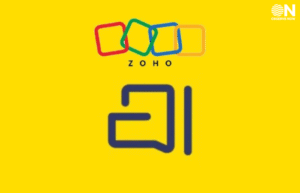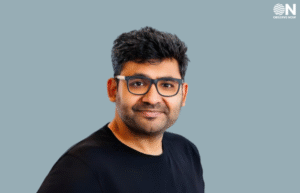Healthcare Must Arrive Before the Emergency”: Portea Medical CEO on Scaling Patient-Centric Innovation with AI and Compassion

In a country where healthcare access and elder care are still maturing markets, Vaibhav Tewari, Co-Founder & CEO of Portea Medical, is building something more essential than disruption: dependability. With a footprint spanning over 120 cities and 20 lakh patients, Portea is redefining what it means to deliver healthcare at home—seamlessly blending clinical expertise, digital tools, and human touch.
In this conversation with ObserveNow, Tewari shares how Portea is staying ahead of patient needs by listening deeply, acting early, and leveraging AI not just for efficiency—but for empathy. From regional scalability to privacy-first data models, his focus is clear: make every care experience personal, proactive, and trustworthy.
This is how the conversation went:
- As a startup, how do you continuously redefine customer experience to anticipate evolving user expectations and maintain a leading position in a rapidly changing digital landscape?
At Portea, excellent patient experience is the heart of everything we do. We focus strongly on elder care and support this through home services such as nursing, physiotherapy, caregiver assistance, and chronic condition management. With over 20 lakh patients served across 120 cities, we have built a flexible system that works for both digital-savvy families and those who are still getting used to online tools.
We stay close to our patients and teams on the ground to understand what is working and where we need to do better. This helps us improve how we assign clinicians, schedule appointments, and make care more relevant for each family. We are also building preventive care journeys for families with ageing parents. These bring together medical support, emotional care, and simple digital tools that help them feel guided and supported every step of the way. For us, innovation means being ready before the problem appears. That is the mindset we follow every day. We also continue to invest in digital tools to improve how patients engage with us, how we listen to them, and how we keep getting better.
- What role does data privacy play in Portea’s product development cycle? How do you position consumer-centric data privacy in your organisation?
Trust sits at the heart of healthcare, and protecting privacy is one of the most important ways we earn and maintain that trust. In Portea, across appointment bookings, medical records, follow-ups, and payments, we make sure that data is encrypted, access is restricted, and patient consent is always respected. We follow India’s Data Protection Act and adopt global standards such as HIPAA. More importantly, health data is deeply personal. Each patient record carries a life story, and it is our responsibility to protect it with care and integrity. What truly differentiates us is our cultural lens: we treat health data as sacred, not just regulated.
- How are you strategically leveraging data across all touchpoints to not only personalize user experiences but also to inform product development and market expansion initiatives?
At Portea, data has become one of our most valuable tools in shaping how we care, how we grow, and how we make decisions with purpose. Our elder care ecosystem brings together physiotherapy, nursing, diagnostics, and caregiver support. All these services are thoughtfully connected to create a complete view of each patient’s journey. This allows us to identify gaps, offer timely support, and personalise care in ways that truly matter.
We use insights from clinical feedback, CRM systems, field operations, and marketing engagement to improve outcomes. For example, we can now launch focused services like stroke rehabilitation in specific neighbourhoods where the need is growing. We also send reminders and check-ins based on a patient’s health profile, making follow-ups more relevant and effective. Beyond this, our data helps us bring services together in a way that feels natural and useful for families. Many of our elderly patients benefit from a combined care plan that includes physiotherapy, diagnostics, and a caregiver, all working in sync to provide a smooth and complete care experience at home.
What once worked quietly in the background has now become our compass. Data is no longer just a support system. It plays an active role in how we serve people with dignity, clarity, and purpose.
- As your user base scales nationally, what unique challenges have you encountered in ensuring equitable access and performance across diverse geographical regions and internet infrastructures?
As Portea grows across India, one of the biggest challenges we face is delivering the same quality of care across very different regions. Healthcare in India is deeply local, and this becomes even more important when we are caring for senior patients who may be living alone or may not be comfortable with digital tools.
To bridge this gap, we have introduced services in regional languages and built simple tools that are easy to use. We also follow a hybrid model that combines digital support with a strong on-ground team, including our nurses and local care coordinators. At the same time, we are focused on standardising care across cities and towns. Whether the patient is in Delhi or Kochi, we aim to provide the same thoughtful, consistent, and respectful care. For us, scale is not just about numbers or reach. It is about making sure every home receives care that is dependable, personal, and rooted in trust.
- Are you currently running GenAI or LLM workloads internally? If yes, through what platforms?
Yes, we have started using Generative AI and large language models across a few key areas to make our care more personalized, our teams more efficient, and our decisions more informed.
For our elder care segment, we are using AI to help our teams draft care summaries, post-surgery instructions, and recovery plans. AI also helps us share wellness tips and reminders that are more relevant to each patient. We are able to review call logs and feedback in a structured way, so we know where to improve. In our marketing and content efforts, AI helps us create health awareness campaigns, write content in multiple languages for broader reach, and build better SEO pages. We are also experimenting with creative testing using AI to see what works best for different audiences.
Internally, we use AI tools that support our teams in writing documents, training new staff, and simplifying bookings and CRM tasks. We are currently evaluating Google Vertex AI and other tools to see how they can help us improve care quality using data patterns.
All of this is done in secure environments, where no personal health information is ever exposed. We follow strict privacy guidelines that align with the Indian Data Protection Act. Looking ahead, we are building an AI engine that can help us detect early signs of health risks for elders, like falls, memory issues, or delayed recovery. The idea is to step in early and support families before a health issue becomes more serious.
———————–
For Vaibhav Tewari, innovation in healthcare doesn’t mean racing toward the next app or feature—it means slowing down to understand lives, anticipate needs, and design systems that feel human at scale. At Portea, that translates into AI-generated care summaries, multilingual content, regional last-mile coordination, and data-driven service mapping—all built around one idea: trust is the best medicine.
As the healthcare landscape shifts toward preventive, personalized models, Portea’s approach stands out for its sincerity and structure. With AI as an enabler and empathy as a core value, Tewari is proving that scaling healthcare doesn’t mean losing touch—it means holding on tighter to what matters most.
















